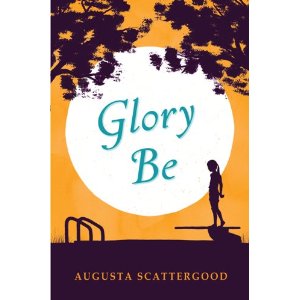Yesterday Joyce Hostetter and I brainstormed our upcoming workshop for the Write2Ignite conference. We have presented “Using Life Experiences to Inform Your Writing” at other venues, but we like to tweak it each time to make it fresh.
We introduce ourselves by each reading a passage that springboards from our own life experiences. Previously, I have read from an article for adults in which I show my father’s story-reading influence upon me as a writer. Joyce challenged me use a childhood memory that has impacted my current work in progress, Half-Truths.
We always begin this workshop by providing sensory stimuli to help prompt memories. Participants build upon these experiences in two different writing activities. Yesterday Joyce and I chewed over how to help writers get to the essence, or “truth” of those memories.
 |
| Joyce and I embracing the book sculptures on The Green in Charlotte, NC |
After our conversation, I e-mailed Joyce and asked to clarify what she meant about the discovering the truth of an experience. She replied,
“In the shed scene in BLUE, I refer to the smell of oil and dirt and how that reminds Ann Fay of her Daddy. But for me, the smell of dirt and oil reminds me mostly of summer days when I would go to the garage and take an inner tube down from a pole on the wall and go to the pond to swim.
“I could describe my own experience in the book – I could talk about hearing the screen door slam as I left the house, running to the garage to beat my siblings to the biggest inner tube, smelling the mix of dirt and oil on the old garage floor, and looping the inner tube over my arm with my towel as I walked to the pond.
“Instead I took a smell that has good memories and applied it to Ann Fay’s daddy and her longing for him. The trick is using details to give life to our stories without simply writing a fictionalized memoir— in other words— pulling nuggets from our lives to inform our writing but not to dictate a scene."
I read Joyce’s email and then went outside to do yard work. As I raked and weeded I thought about Joyce’s challenge: to see if a nugget from my past could inform my work. I dug up wild onions, smelled them, remembered their odor, and wondered if one of main characters would ever sniff wild onions. I came inside and wrote this poem from Kate Dinsmore’s perspective.
 |
| Image courtesy of ppd.purdue.edu |
Wild Onions
The smell is pungent and my eyes sting when I hold them to my nose.
My nose tingles. The earth is springy and brown.
Lillie and I wash our hands after weeding and we both smell like onions.
The same color of muddy water washes down the drain.
I end up with white hands; hers are only slightly darker than mine.
Yet she has to sit at the back of the bus.
She goes to a school where the books are used.
She has to worry every time she walks through Myers Park if someone is going to accuse her of being in the wrong place at the wrong time.
She is always looking over her shoulder.
Wondering, if she will ever measure up to some white standard of beauty. Actually, never feeling like she will measure up.
Now my eyes and nose tingle, not from onions, but I am sad for my friend.
And yes,
She is my friend.
This poured out of me and left me in tears—the poem and process both surprised and delighted me.
What about the orange popsicles? I think I’ll tuck that taste and memory into my pocket and save them for another poem.












